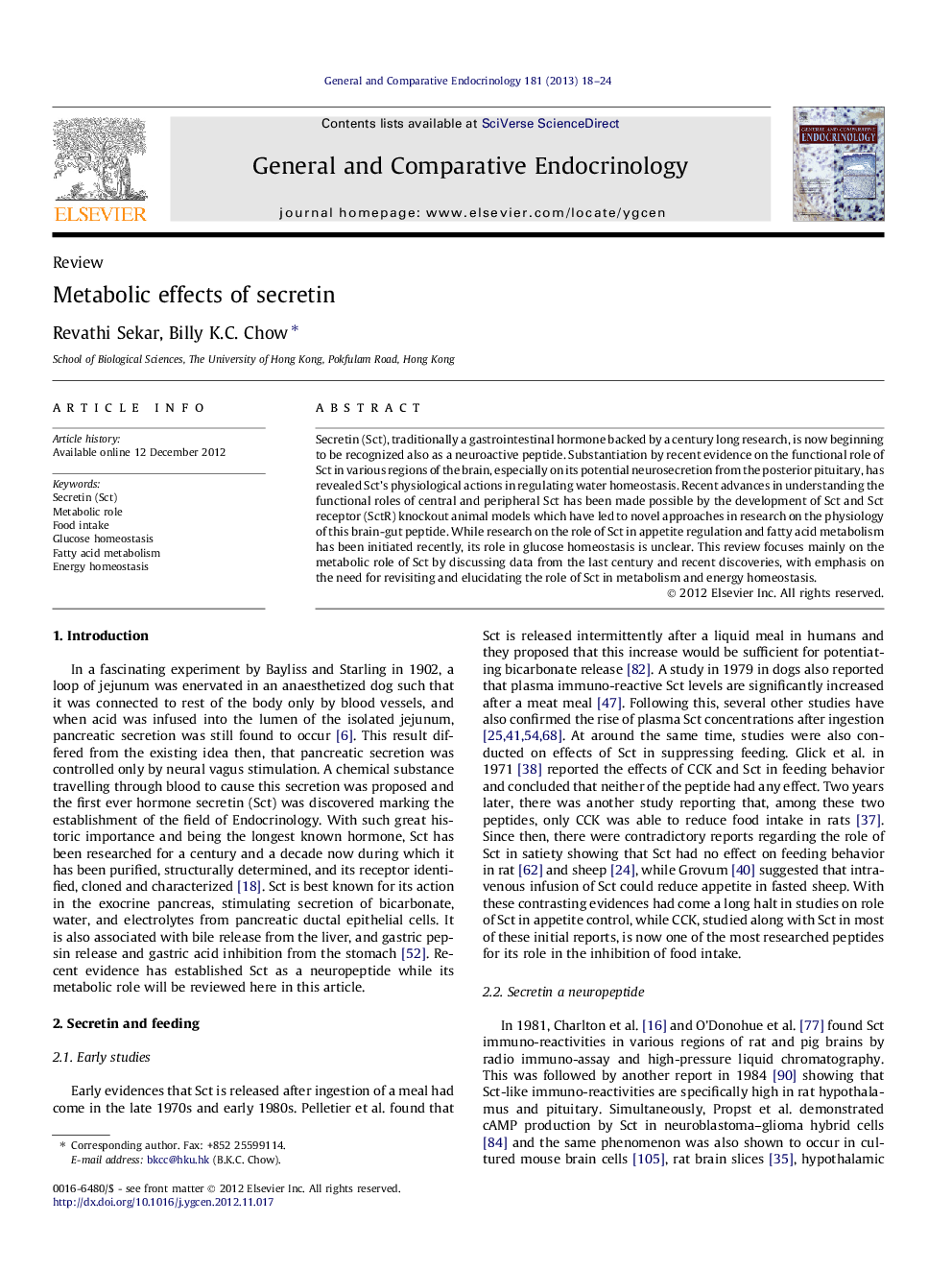| Article ID | Journal | Published Year | Pages | File Type |
|---|---|---|---|---|
| 2800394 | General and Comparative Endocrinology | 2013 | 7 Pages |
Secretin (Sct), traditionally a gastrointestinal hormone backed by a century long research, is now beginning to be recognized also as a neuroactive peptide. Substantiation by recent evidence on the functional role of Sct in various regions of the brain, especially on its potential neurosecretion from the posterior pituitary, has revealed Sct’s physiological actions in regulating water homeostasis. Recent advances in understanding the functional roles of central and peripheral Sct has been made possible by the development of Sct and Sct receptor (SctR) knockout animal models which have led to novel approaches in research on the physiology of this brain-gut peptide. While research on the role of Sct in appetite regulation and fatty acid metabolism has been initiated recently, its role in glucose homeostasis is unclear. This review focuses mainly on the metabolic role of Sct by discussing data from the last century and recent discoveries, with emphasis on the need for revisiting and elucidating the role of Sct in metabolism and energy homeostasis.
► Secretin (Sct), a gastrointestinal hormone and a neuropeptide, is only beginning to be addressed for its metabolic role. ► Central and pheripheral Sct exert its anorectic effect through central melanocortin system. ► Sct stimulates lipolysis and fatty acid uptake in adipose cells. ► Role of Sct in glucose homeostasis is unclear. ► Further research is warranted to elucidate the role of Sct in metabolism and energy homeostasis.
